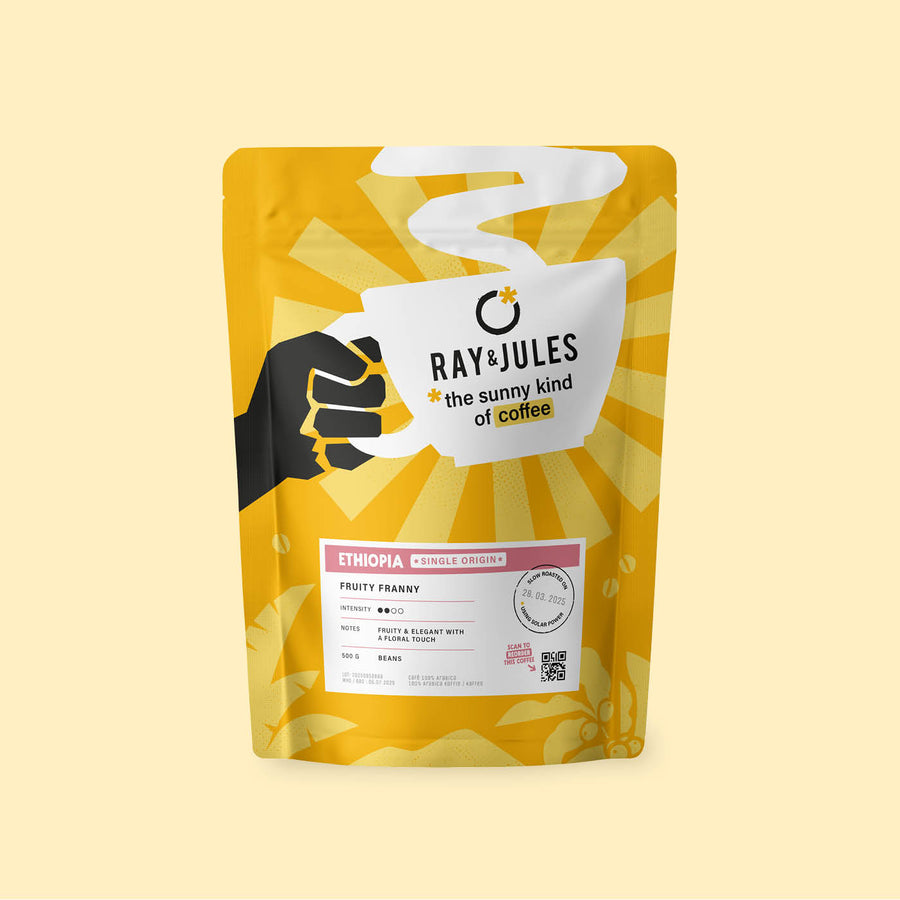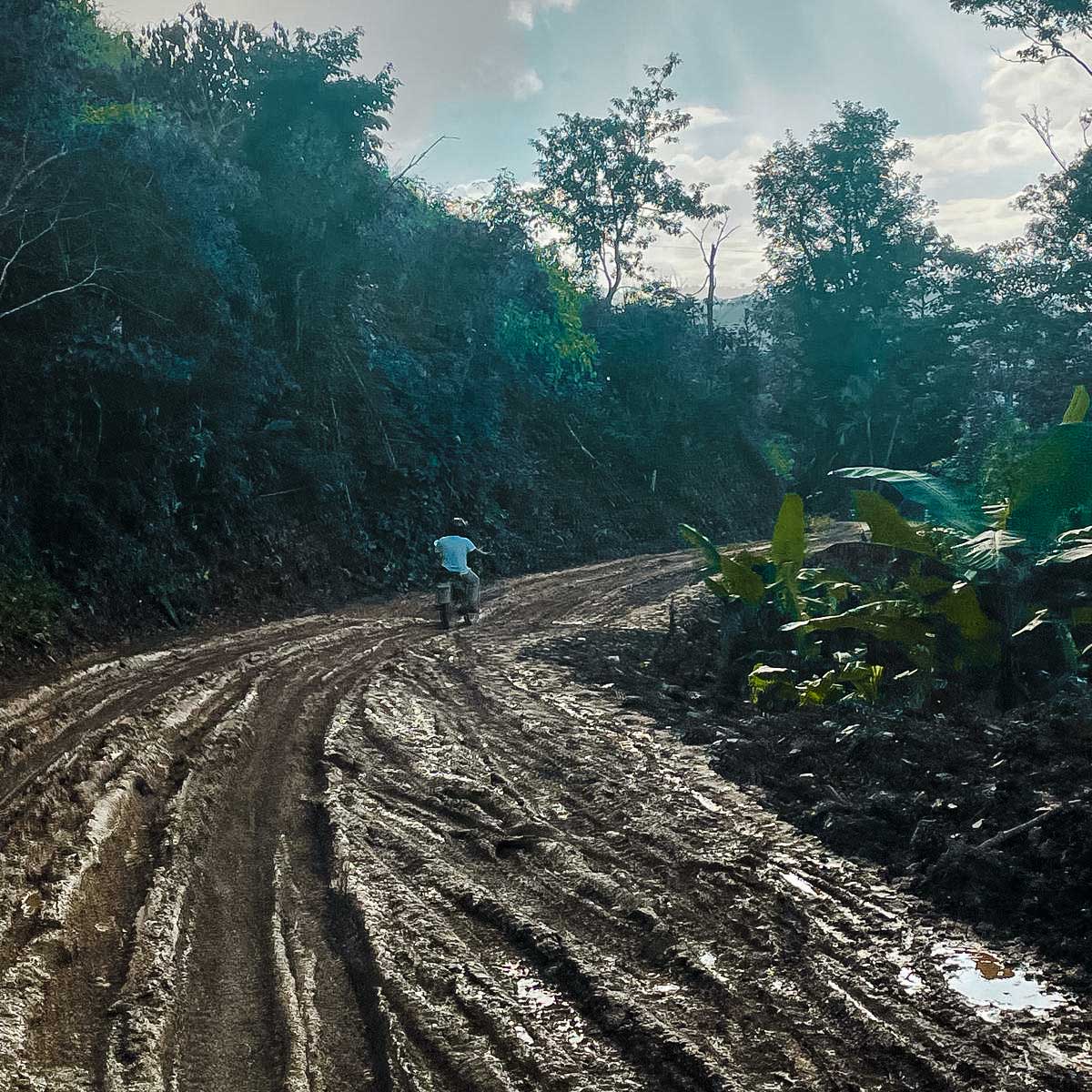
The first meeting at the hacienda
We arrive at the “Hacienda Santa Mélida” where Don Heradio (Heradio's father) awaits us with music and dance moves: “aqui se baila!”; “here, we always dance!”.
The building is little, looking shabby and dilapidated. We are welcomed by an arsenal of dogs, chickens and roosters. The farm is in the midst of greenery, with an overwhelming number of trees, plants and flowers. Don Heradio wastes no time and immediately takes us into the plantations. He makes us climb mountains and jump rivers as if to test what kind of meat he has in the tub.
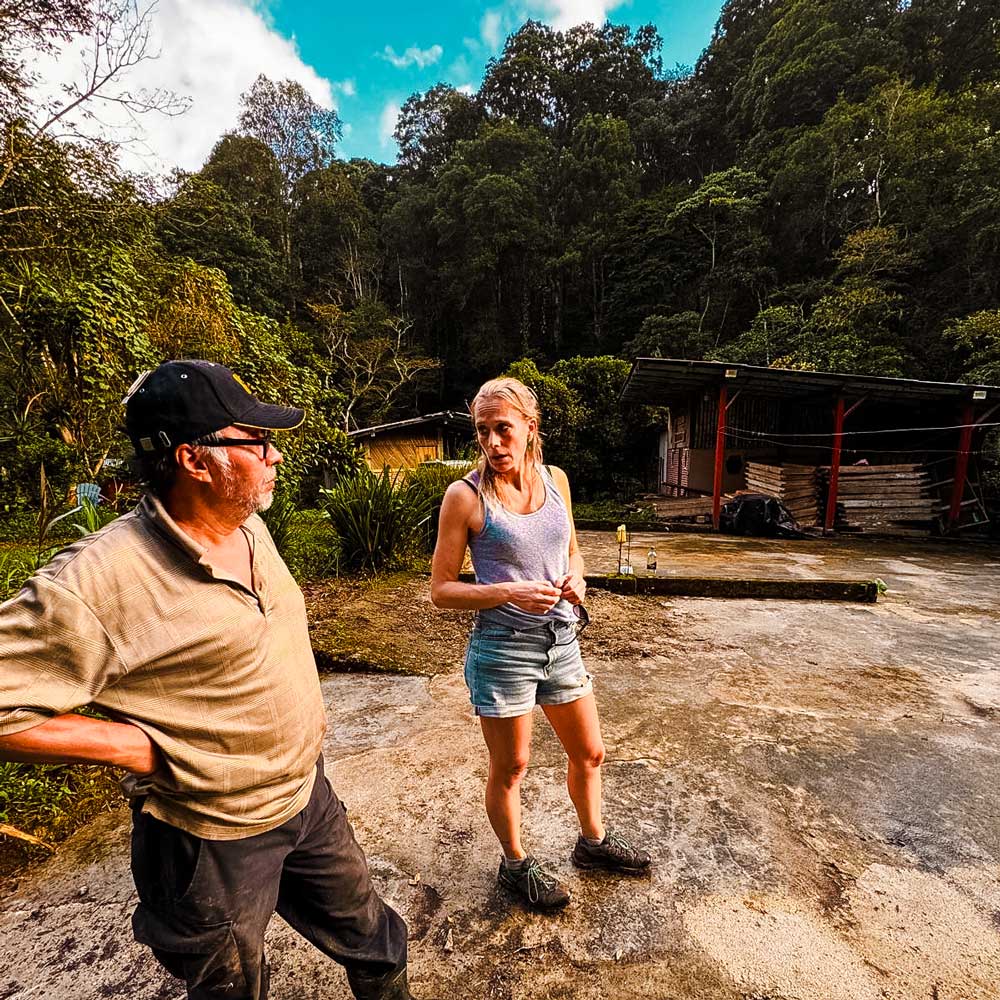
The first meeting at the hacienda
We arrive at the ‘Hacienda Santa Mélida’ where Don Heradio (Heradio’s father) awaits us with music and dance steps: “aqui se baila!”; “here we always dance!”.
The building is not much, looks dilapidated and dilapidated. We are welcomed by an arsenal of dogs, chickens and roosters. The farm is located in the middle of greenery, with an overwhelming number of trees, plants and flowers. Don Heradio wastes no time and immediately takes us into the plantations. He lets us climb mountains and jump rivers as if he wants to test what kind of meat he has in the tub.
Oscar and I brave the tour and entertain ourselves with our guide's stories and jokes. Very quickly we sense that Don Heradio is not only a great philosopher and religious man, but also well-read and intelligent. He knows his biotope like the back of his hand and his life story is one of great complexity, perseverance, gentleness and affection. I am somewhat overwhelmed by this man and am trying to absorb everything as best I can.
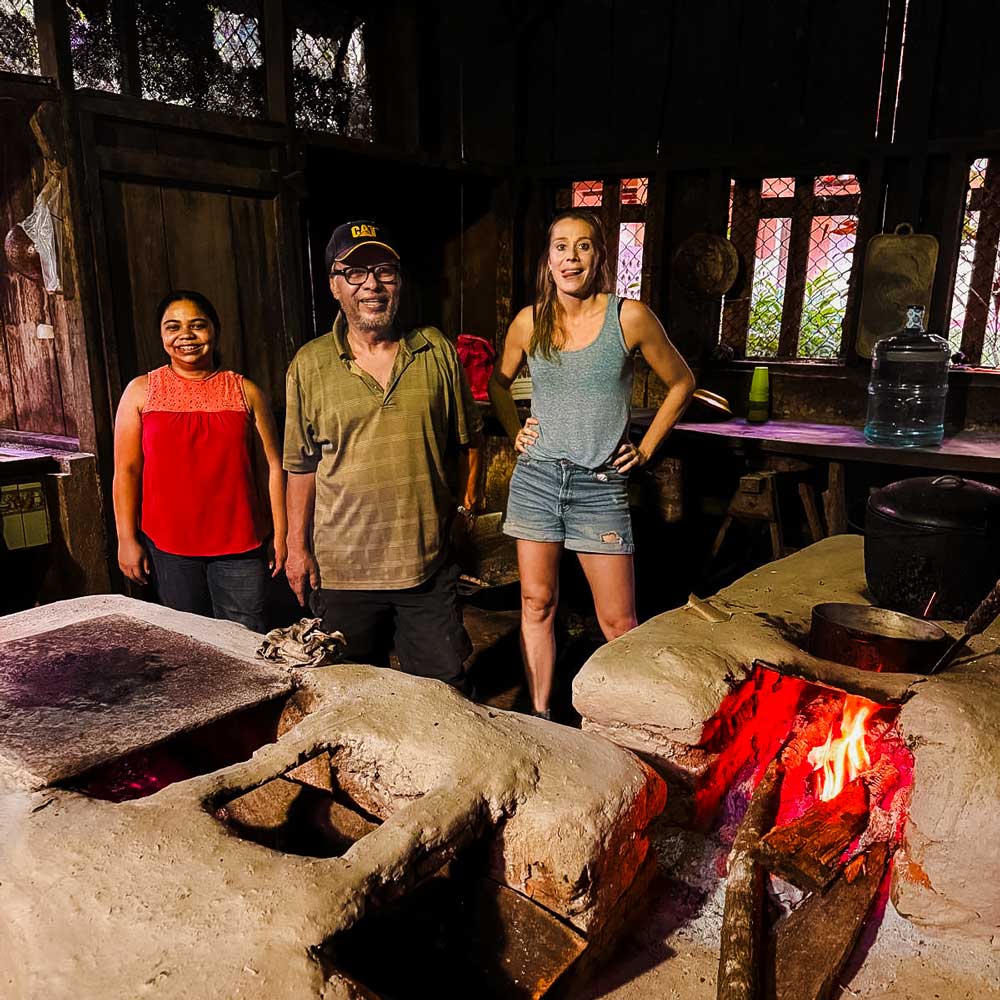
Tortillas, chocolate and coffee
After a while we are allowed to take out our luggage. After a steep, short climb, we arrive at 2 other buildings. In the large, simple kitchen building, Celia makes tortillas at an impressive rate. She greets us with a warm, shy smile. The place is dark (electricity is limited) and very dirty. But incredibly cozy with a big wood fire in the middle, a hammock, a huge wooden table and people walking in and out. Attached to the other building is a large hut made of bamboo. Simple, but beautiful in this green oasis of silence. We are assigned a place to sleep there.
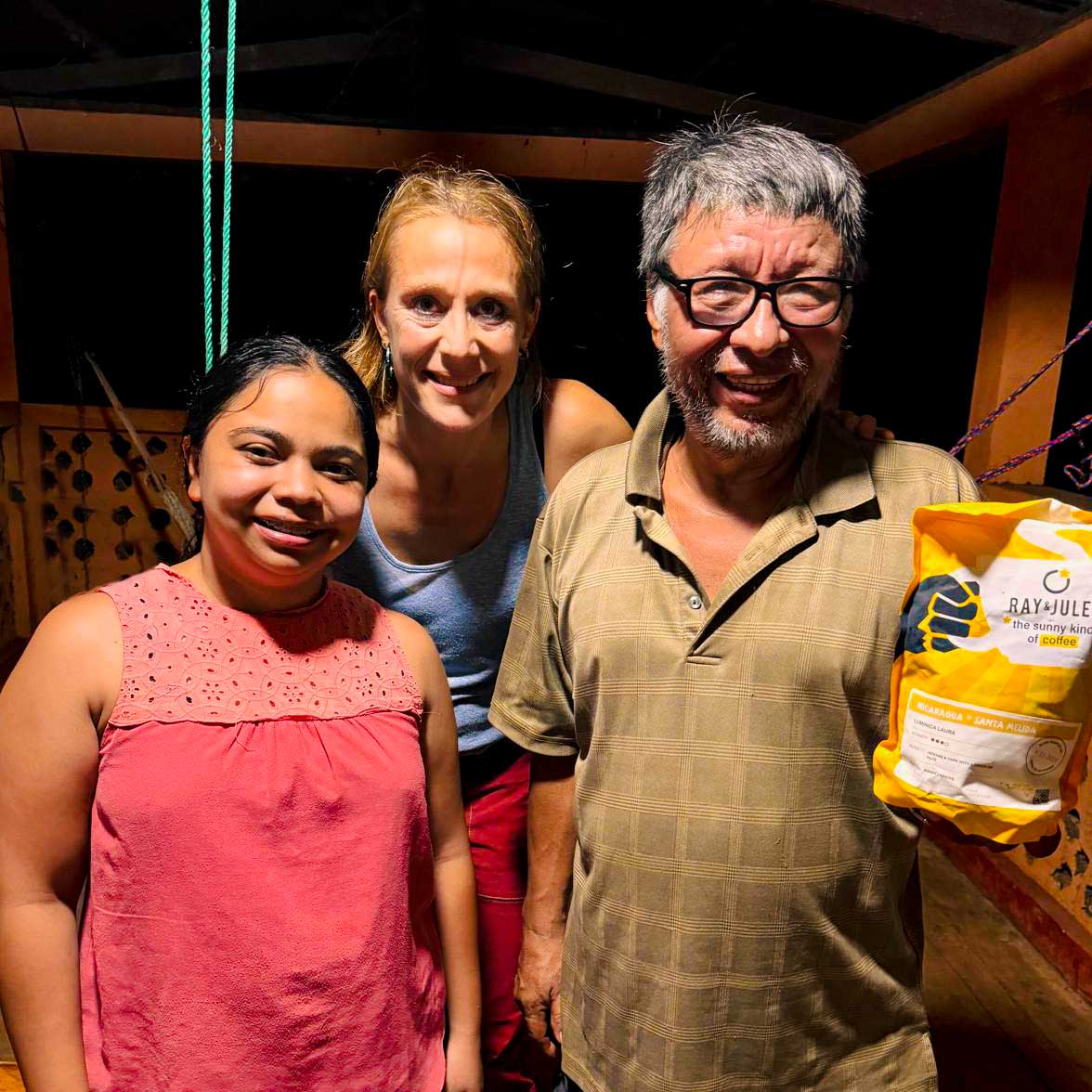
That evening we eat the typical Nicaraguan “Gallo Pinto” with tortillas and yuca. I bring out the bottle of wine I bought and the Belgian chocolate. They love it. And then I show them their own coffee, roasted and packaged by us. Laura, Heradio and Don Heradio are visibly moved. They study the bag meticulously, take pictures and are so grateful, just like me, for this moment. Laura says it means a lot to them to see what happens to their coffee. She feels enormously respected and valued.
Laura says it means a lot to them to see what happens to their coffee.
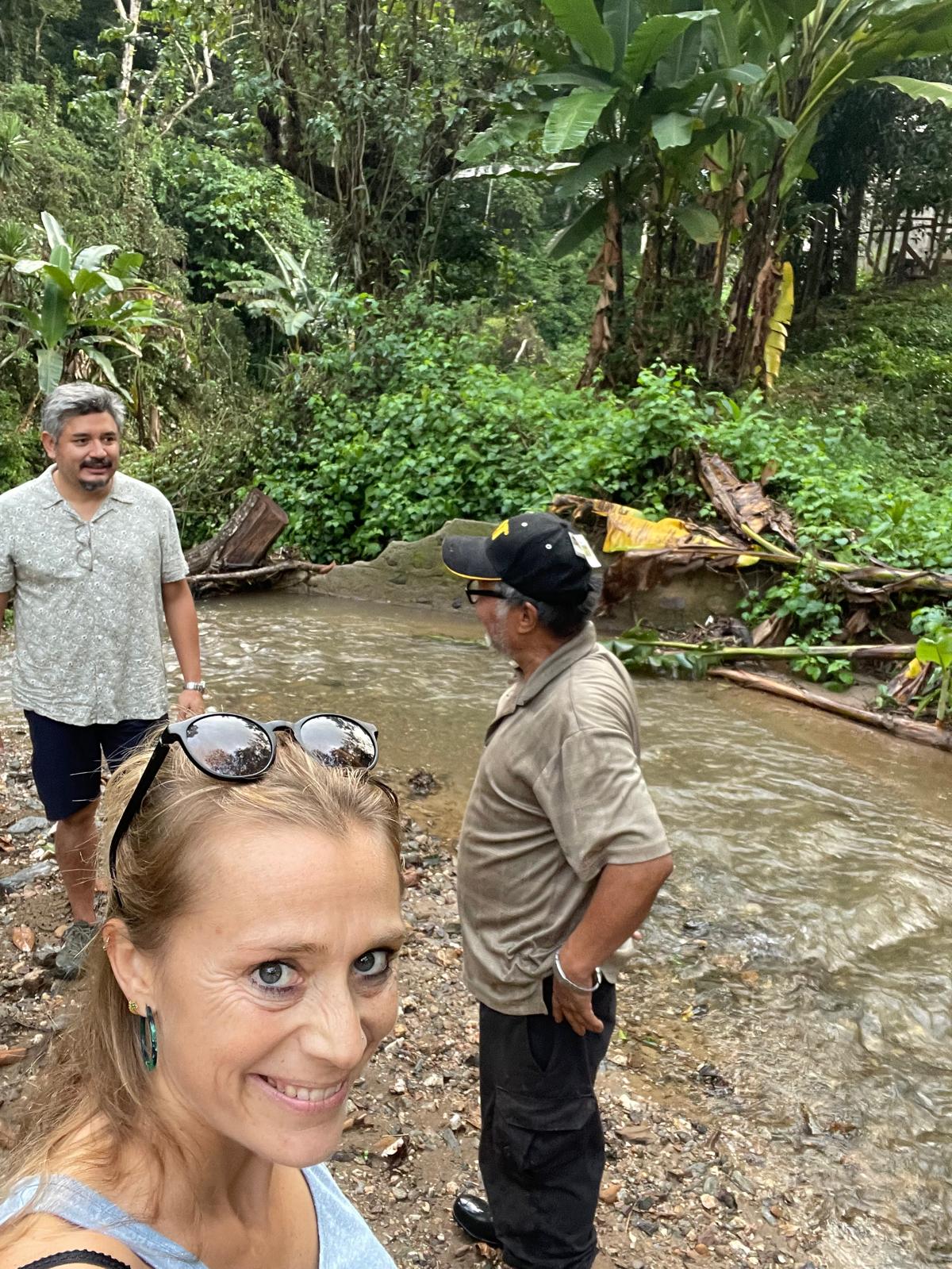
Coffee as a lifeline
I barely sleep, both too many impressions and too much noise. The roosters crow all night long and at 5 a.m. the electricity jumps on, along with a crackling - far too loud - local radio. In the background I can already hear Celia rhythmically knocking on tortillas again. So I get up, walk to the kitchen and ask if I can help. She laughs at my failed tortillas, but continues to guide me patiently.
A little later, the first young men arrive with their machetes, ready for plantation work. Don Heradio takes Oscar and me for a day trip through his acres of coffee plants. We look at him suspiciously after our “outing” yesterday, but Don Heradio reassures us; we will walk slowly, observe, enjoy and talk. Along the way, he tells his life story with coffee as his lifeline, one that has already given him so much satisfaction, sadness and goals.
Complex times in San Juan del Río Coco
In 1890, his wife's great-grandparents, Doña Mélida, bought a piece of land and began sowing coffee. In 1950, his father-in-law, Don Apolino, took over the finca, who in turn passed everything on to his daughter Doña Mélida. Heradio, only child, now continues the work: “We carry, whether we like it or not, coffee in our hearts and roots. It is here that we are happy (...) ”, says Don Heradio seriously.

The political situation in Nicaragua is complex to say the least, people there are not free and must be careful about political statements. The region of San Juan del Rio Coco was hit hard by guerrillas. The government does not support in any way, so residents rely on their own (will) power. Oscar and I sense from everything that both the people and their plantations are still recovering.
We come to a place with a beautiful view and he points out a small village in the distance, that's where he grew up, even then among the coffee plants. His eyes turn glassy. It is beautiful there and Don Heradio looks at me: “Sarah, by your next visit in 2025, I will make a wooden hut here with 2 floors, a hammock and named 'mirador Sarah' “. Oscar and I laugh at first, but Don Heradio seems to mean it and I feel honored.
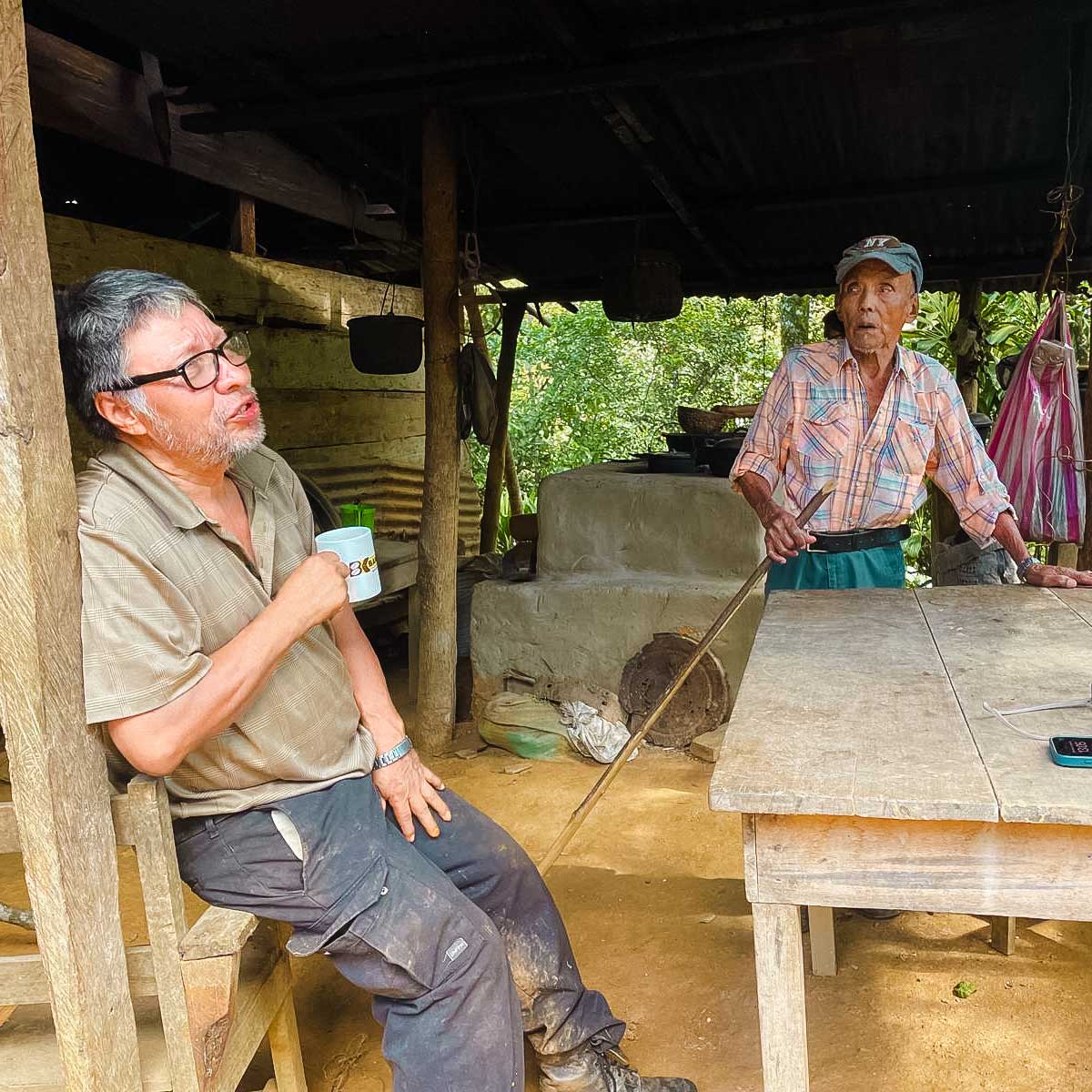
We pass by his wife Mélida's farm, where she takes care of her parents. We meet Don Apolonio, well into his 90s. Slowly he comes shuffling by with a cane and looks right through us with his clear, blue eyes. We talk about war and other horrors, but end lightly with anecdotes about his many wives and children.
We visit the “beneficio humedo” where the processing of the berries takes place. For now, quiet before the storm: the place is very quiet. The harvest only begins in a few days and things will be very different then. There are about 15 people working on the plantations, but during the harvest there will be 150. We said goodbye and followed Don Heradio crisscrossing the plantations without logic or paths. Arriving back at Laura and Heradio's place, it is soon dark and we settle down with Laura and Heradio around figures, prices, risks and contract terms. Solid subject matter. In the evening, there is 'flor de caña (rum) and Don Heradio and Oscar are well up to speed with reciting poems and other inspirational texts.
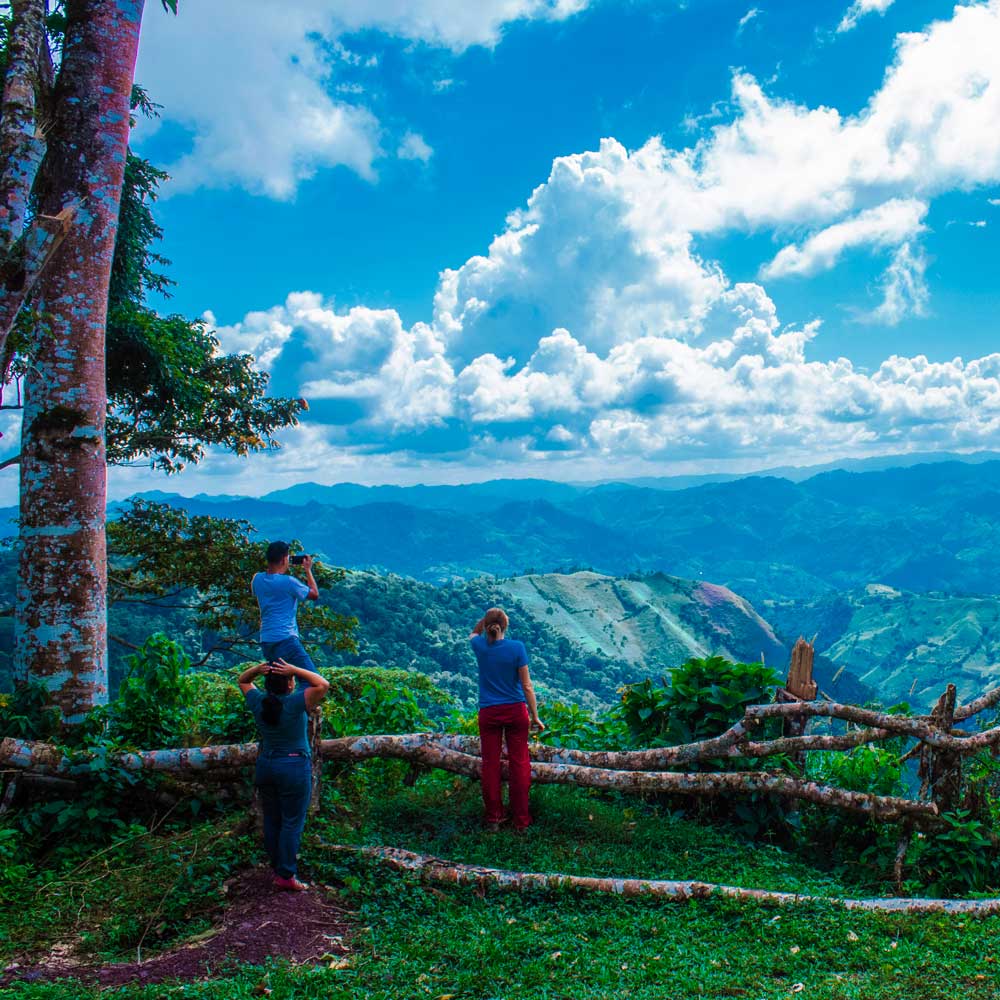
Laura and the cooperative
The next morning Oscar leaves for some other appointments in Jinotega. After breakfast, Laura and I put ourselves together with a full thermos and we talk about coffee, her life, mine. Fine, this way for once without the masculinity. It becomes a very open conversation. She explains that she has only been together with Heradio for 3 years; she grew up in the town of Estelli. Life already dealt some blows to her, but now, she says, she feels strong and ready for this (she points to the greenery and coffee plants).
When Heradio came into her life, it was quickly apparent that she needed to go with her into the “jungle” to his heart and roots. She enjoys nature and the many animals she cares for. Laura is a very committed woman who does not take just any path. She thinks about her choices and discusses a lot with Heradio.
She is the leader of the cooperative, does the administration, takes care of the relationships and looks for sales. Heradio coordinates the people on the plantations and Don Heradio walks around his plantations for hours every day to see what needs to be done right. Their finca covers 70 acres, so Don Heradio covers some steps every day 😊. This finca has always grown organically, for don Heradio it was a no-go for his work force to use chemicals on the one hand and to do too much intervention in the natural fauna & flora on the other. He read and studied a lot about agroforestry farming techniques and traveled the world to learn about materia. On his plantation, it is indeed a “wild opulence. I see little structure and wonder how this will all be coordinated during harvest; 70 acres with a lot of steep slopes and little access. Don Heradio smiles and raises his machete in the air; “with this you will get everywhere!”
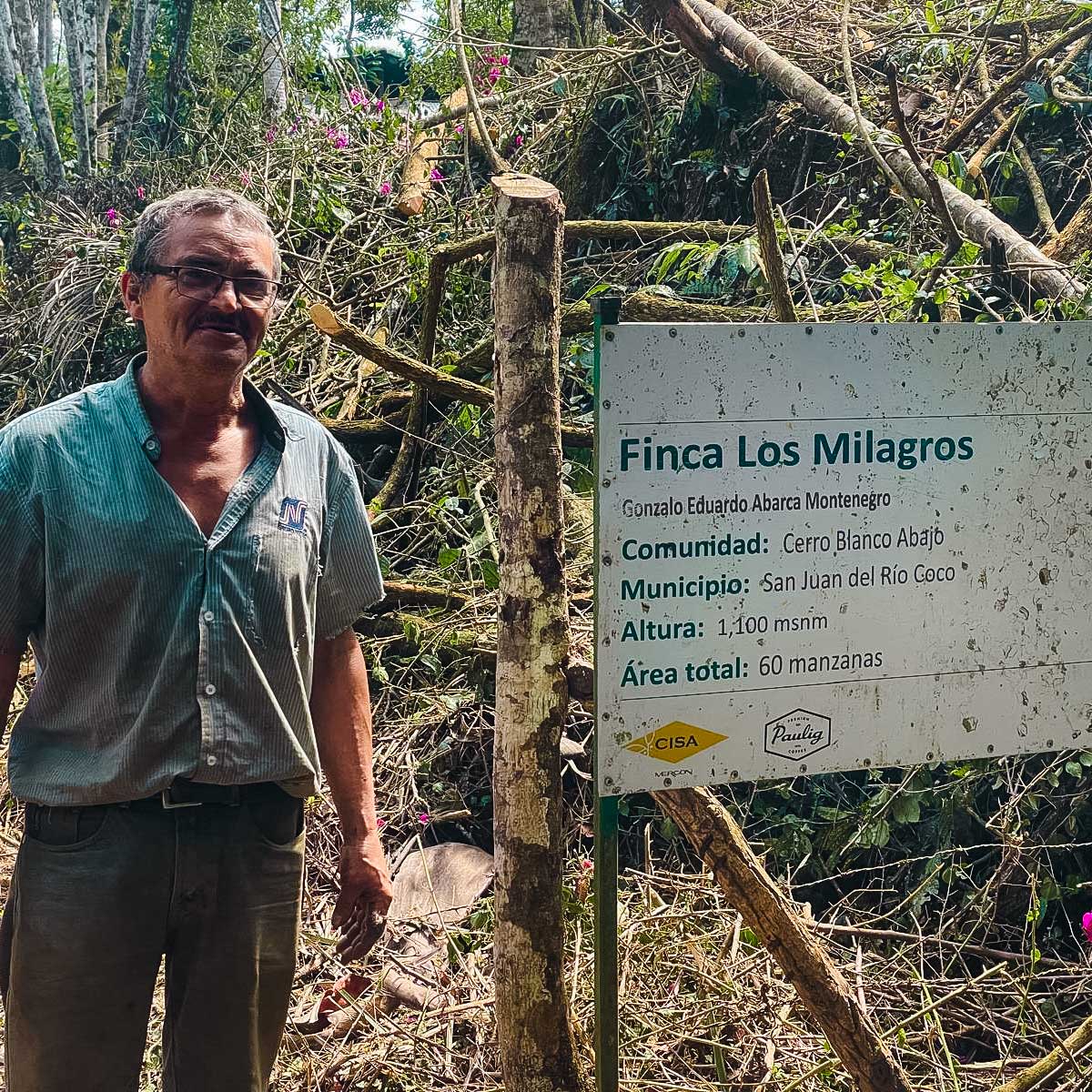
They founded the cooperative in 2022 to address the many challenges faced by farmers; lack of financing, high costs, the low price the farmer ends up receiving and little access to the (international) market. With 17 member fincas, they dream of growing to 40, but want to stay small enough to avoid corruption and distance from the farmers.
That afternoon we visit some of the other fincas affiliated with the coop. These are really small, poor farmers. Again I am shocked at how little these people have and how welcoming and open they receive me. They offer me food and drink, take me around their coffee plants and make me promise to come back next year to help out.
The co-op wants to stay small enough to avoid corruption and distance from farmers
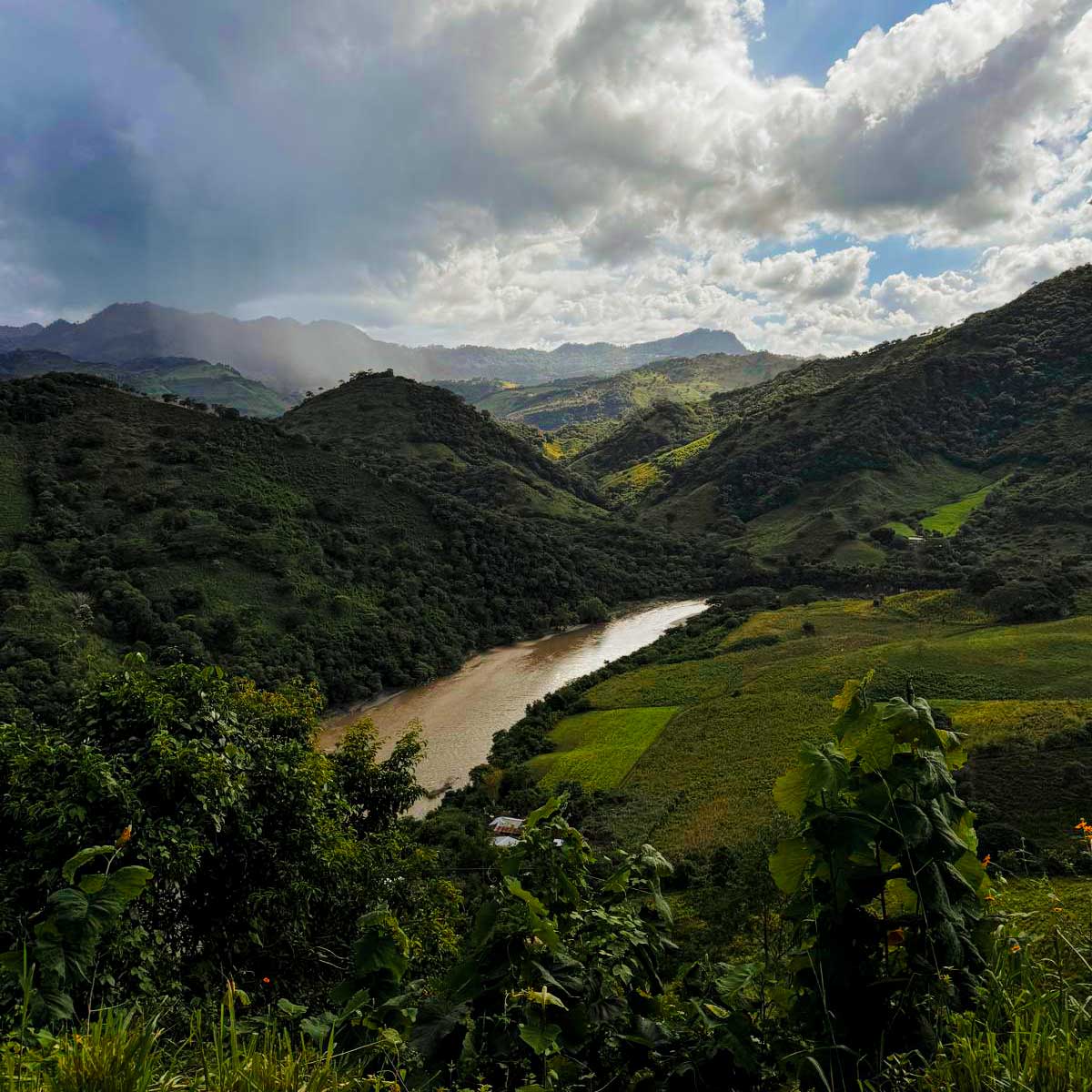
A farewell full of hope
The next day I say goodbye to Celia and Don Heradio. They wave us off and Heradio, Laura and I leave for a 6-hour drive to BENCAFE (Beneficio Seco) in Matagalpa. At Bencafé, Oscar joins us again. We get a tour, a cupping including Laura & Heradio's coffee, explanation of their quality controls and then it's time to talk around financing and the contract with Erik (general manager of Bencafé). Still too early to make real decisions, as the harvest has yet to begin, but the common vision is there: short chain, fair prices that we negotiate together, quality and long-term commitment.
Outside at Bencafé, we say goodbye to Laura and Heradio. It does us all some good. Laura looks me in the eye and asks if we will buy from them again this harvest. I startle, because how can she even doubt that? But she replies that this “instant” story is new to them and feels unreal. For us, it is exactly the connection we strive for: bringing people, coffee and stories together and sharing them. We look forward to the next visit and the promise of Don Heradio with his “Mirador Sarah,” high in the mountains where dreams come true.
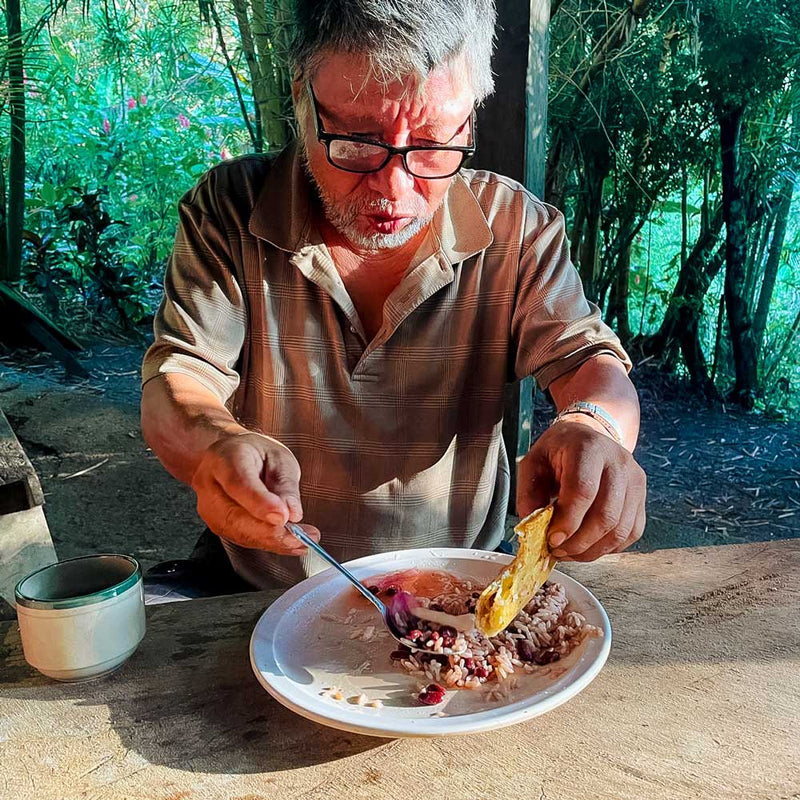

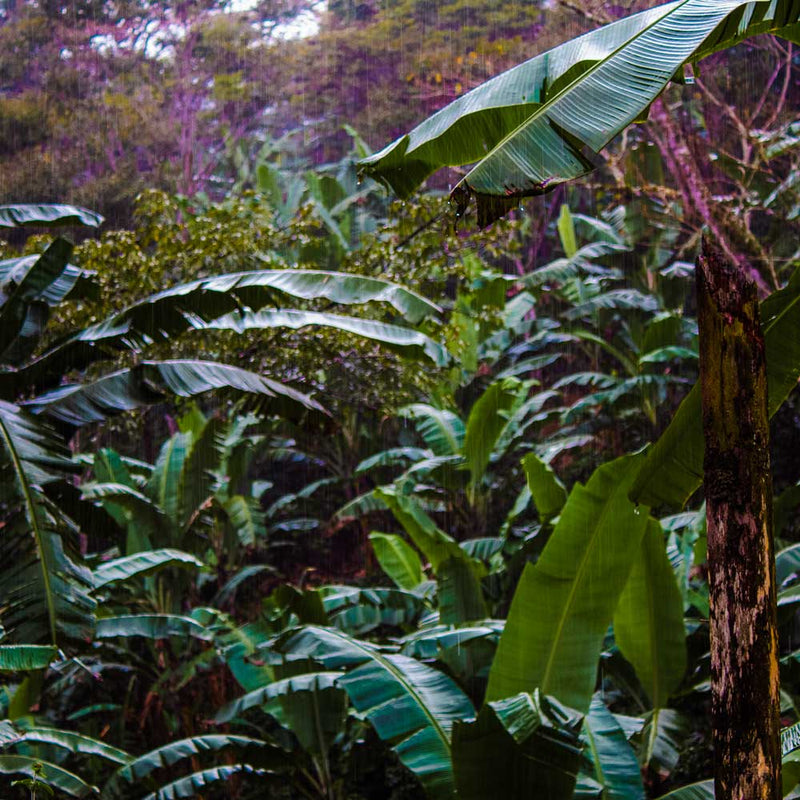
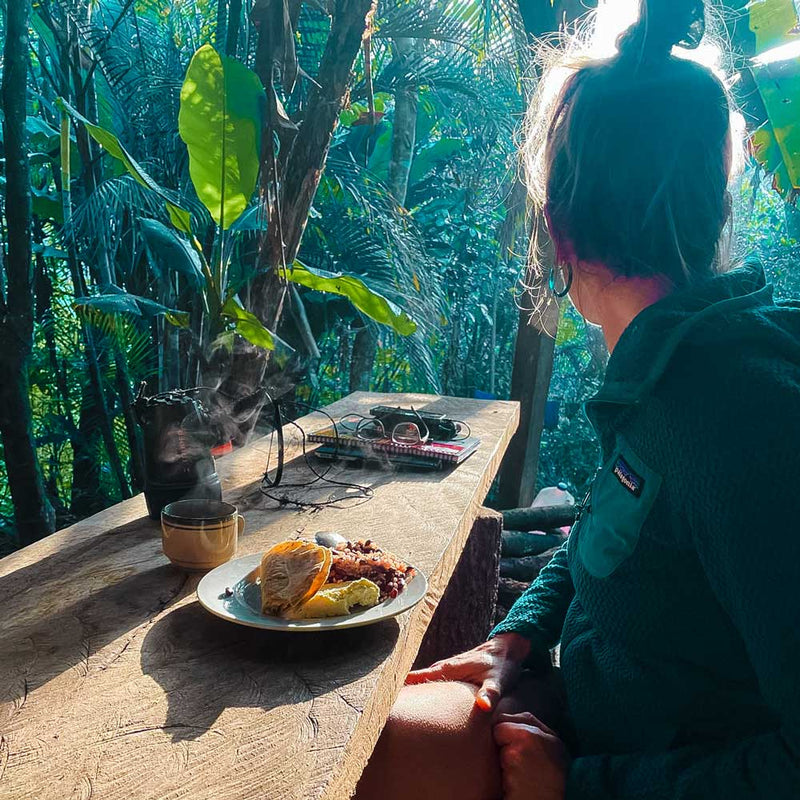

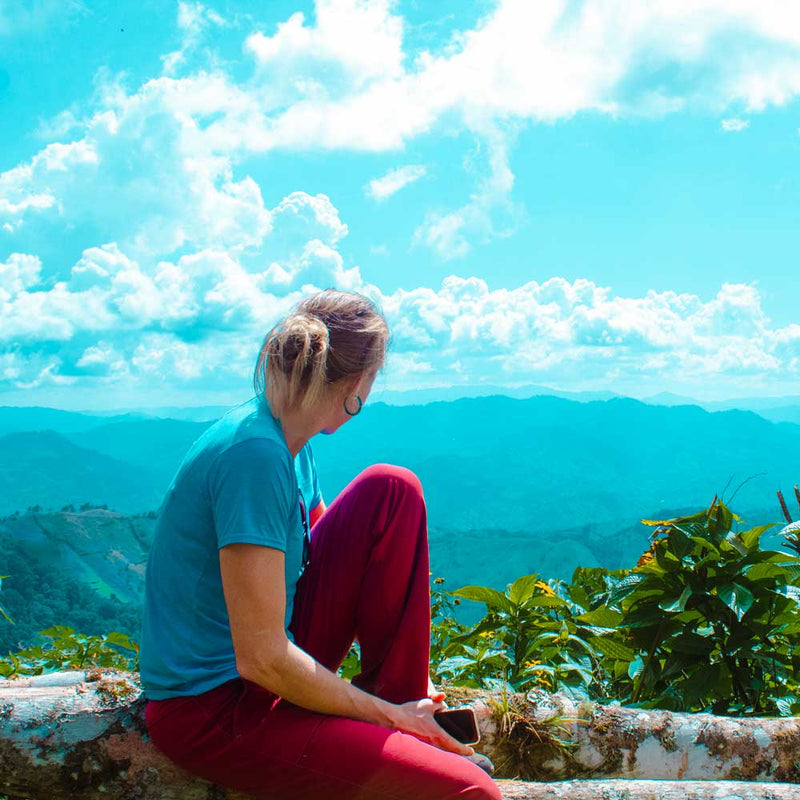
coffee can connect people
This trip to Nicaragua revealed not only a story of coffee, but also of resilience, traditions and collaboration. Sarah's visit shows how direct connections can bridge the gap between farmers, roasters and even consumers and highlight the value of fair trade. Want to contribute to a sustainable coffee supply chain and support the farmers of San Juan del Río Coco? Discover their coffee and experience the story behind Lovely Luna.
